-
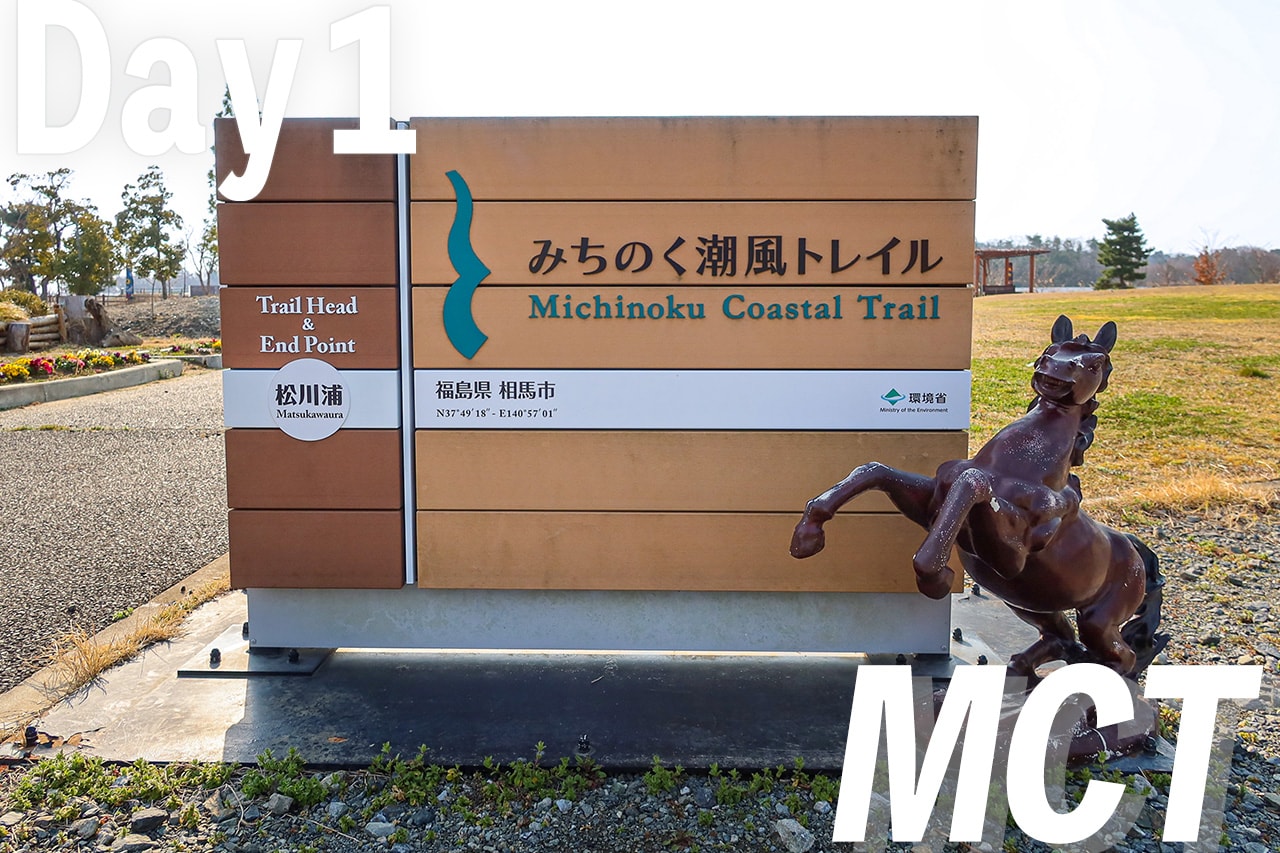
Day1 of MCT (Michinoku Coastal Trail): Soma, the Southern Terminus 相馬市
The first morning of our Michinoku Coastal Trail journey broke over a quiet sea in Soma, blue and endless. We set out northbound—against the usual flow—hoping spring would follow our steps. The day carried us through farmlands and shrines, soft wind and the season’s first cherry blossoms. By evening, tired but unhurt, we reached the foot of Mt. Karou, our next climb waiting. The road ahead stretched north for a thousand kilometers, and it already felt like the beginning of something vast. -
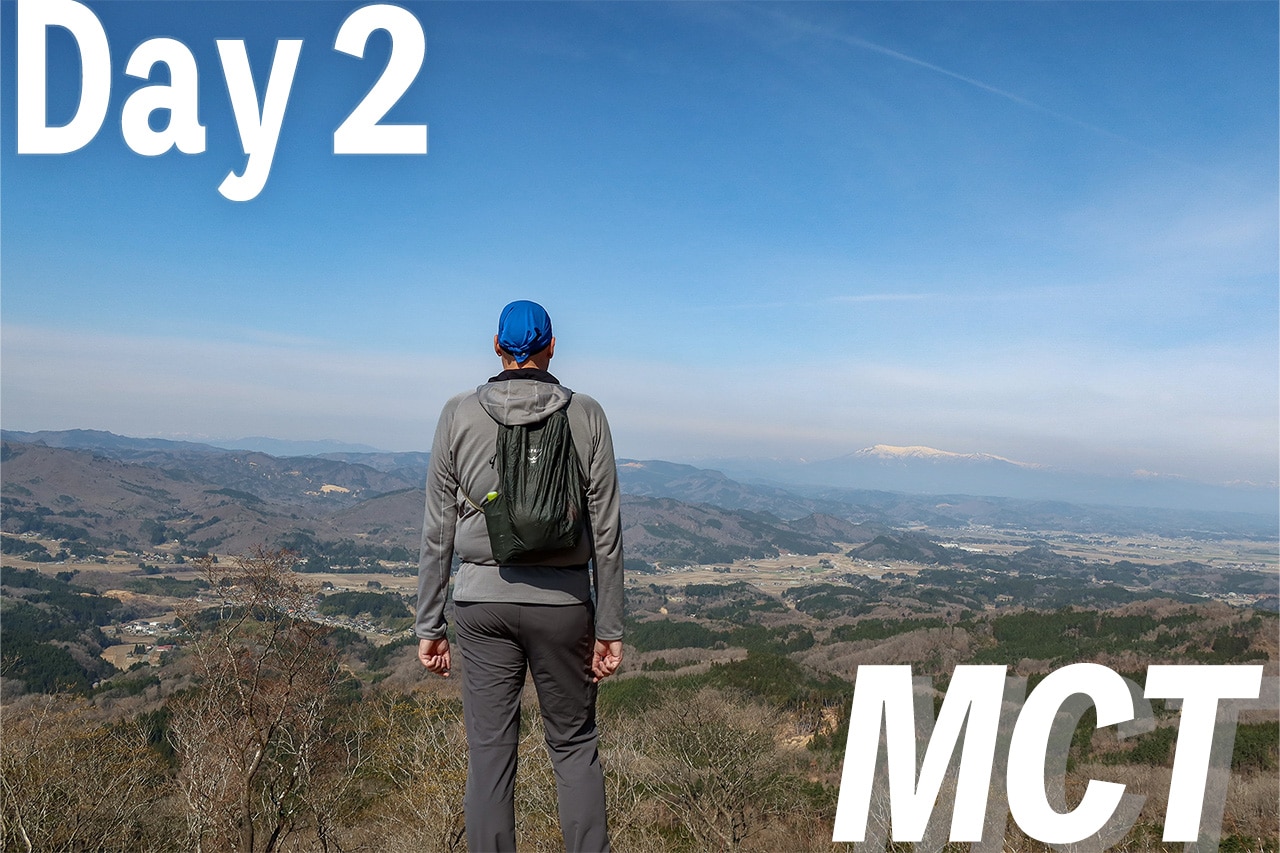
Day 2 of MCT (Michinoku Coastal Trail): Mt. Karou 鹿狼山
Day 2 opened bright and clear as we climbed Mt. Karou, where the summit offered a full circle of mountains, farmland, and the shining sea. Springs and early cherry blossoms eased the way down before the road stretched into flat, sun-baked silence—just heat, wind, and one lonely red vending machine that felt like salvation. Later, the ruins of a seaside school brought the day to a quiet pause, and somewhere beyond that, a small unexpected kindness reminded us that the trail still had surprises waiting. -
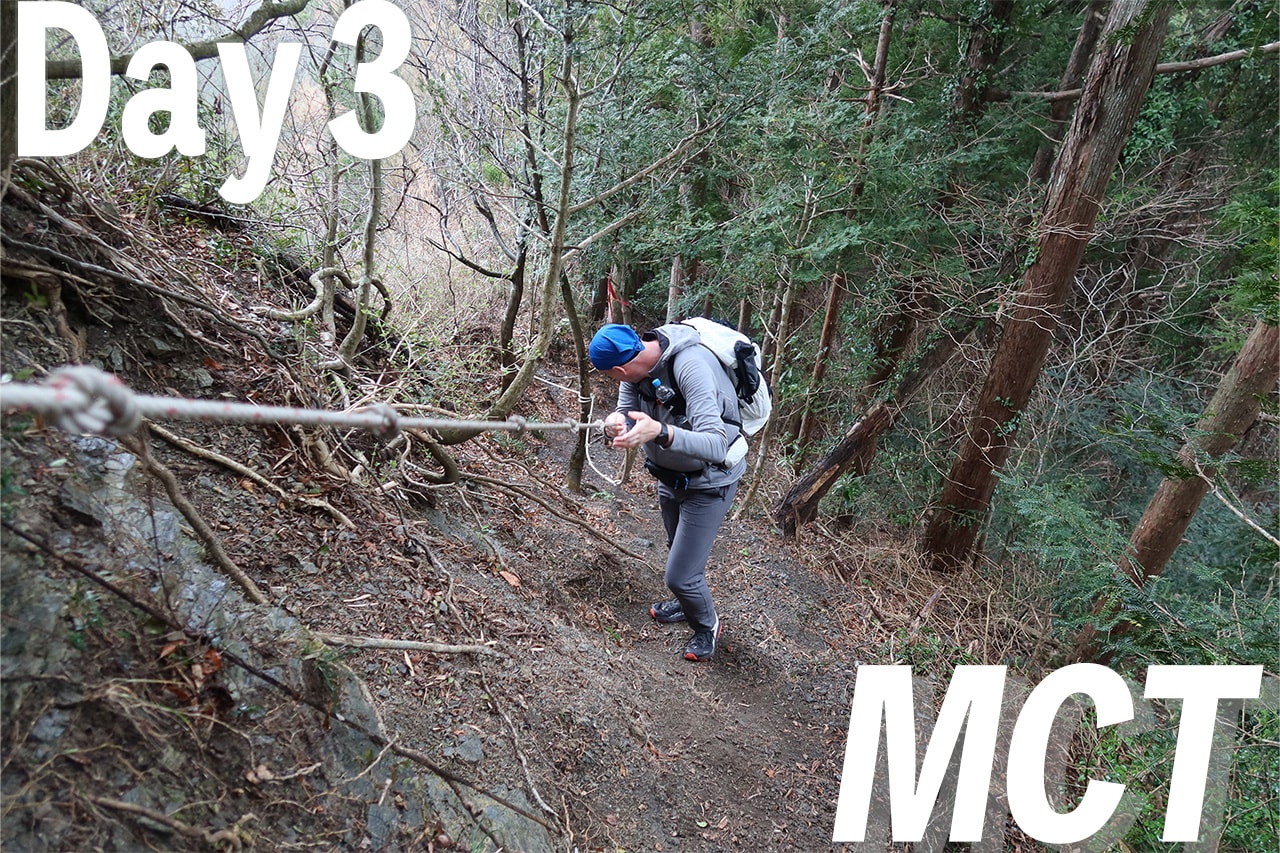
Day 3 of MCT (Michinoku Coastal Trail): Watari Horst Mountains Traverse 亘理地塁山地縦走
Day 3 led us over the Watari Horst Mountains — a string of small peaks that looked gentle on the map but proved quietly demanding underfoot. The trail rolled from one ridge to the next, sometimes through open views, sometimes under cedar shade, until rain found us near the end. By the time we reached Watari’s quiet streets and the promise of a seaside onsen, our bodies finally understood how even low hills can add up. It wasn’t dramatic, but it was one of those steady, satisfying hiking days that leave you both worn out and content. -
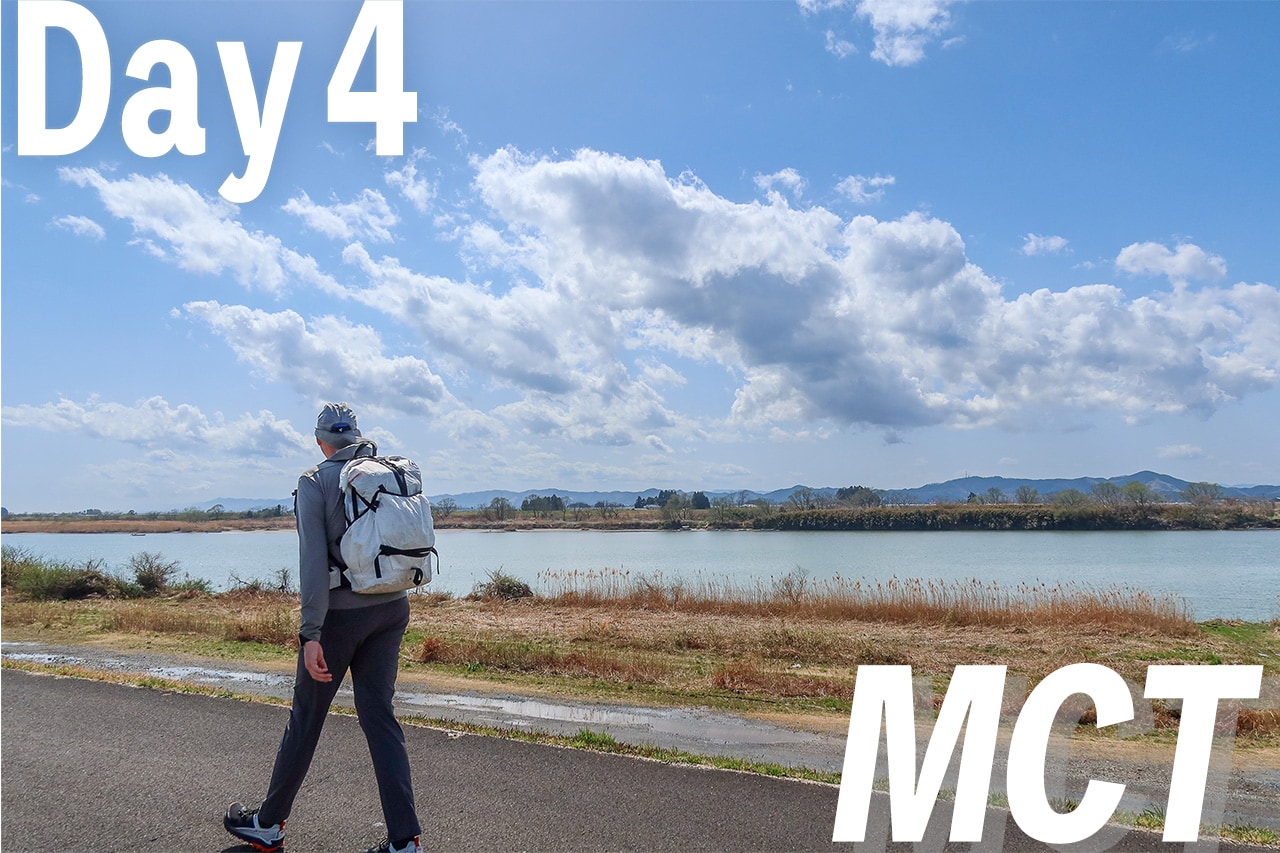
Day 4 of MCT (Michinoku Coastal Trail): Abukuma River & Iwanuma 阿武隈川と岩沼市
Day 4 began with easy steps through quiet neighborhoods. We met a local elder with his dog—little did we know he was the oldest MCT thru-hiker still in the making then. The trail followed the wide Abukuma River, past stone-carved Buddhas and across long, flat coastal plains where the horizon never seemed to move. Just when the monotony started to wear us down, we found a small sheep village—a cheerful surprise in the middle of nowhere—and later, the last standing house from a vanished seaside town. By the time Sendai Airport came into view, we were simply glad to have walked it all. -
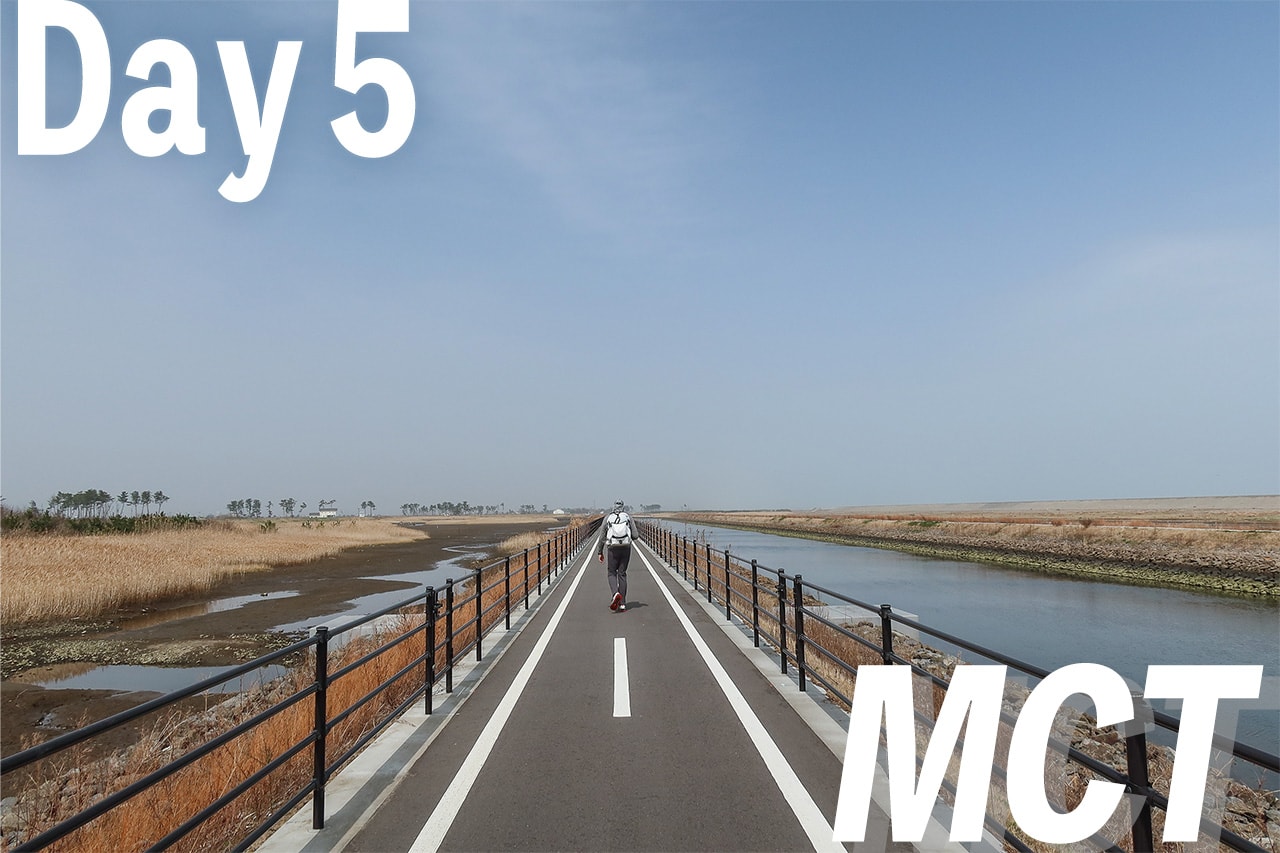
Day 5 of MCT (Michinoku Coastal Trail): Natori 名取市
Day 5 began under a sky as white as paper—eerily still after days of blazing blue. From Sendai Airport to the quiet bay of Yuriage, we followed the line between the sea and the city, where traces of the 2011 tsunami still lingered. The road stretched straight for miles, flat as the horizon itself, testing both patience and feet. By the time the factories of Sendai Port appeared through the haze, all we wanted was rest, hot water, and a place to breathe. -
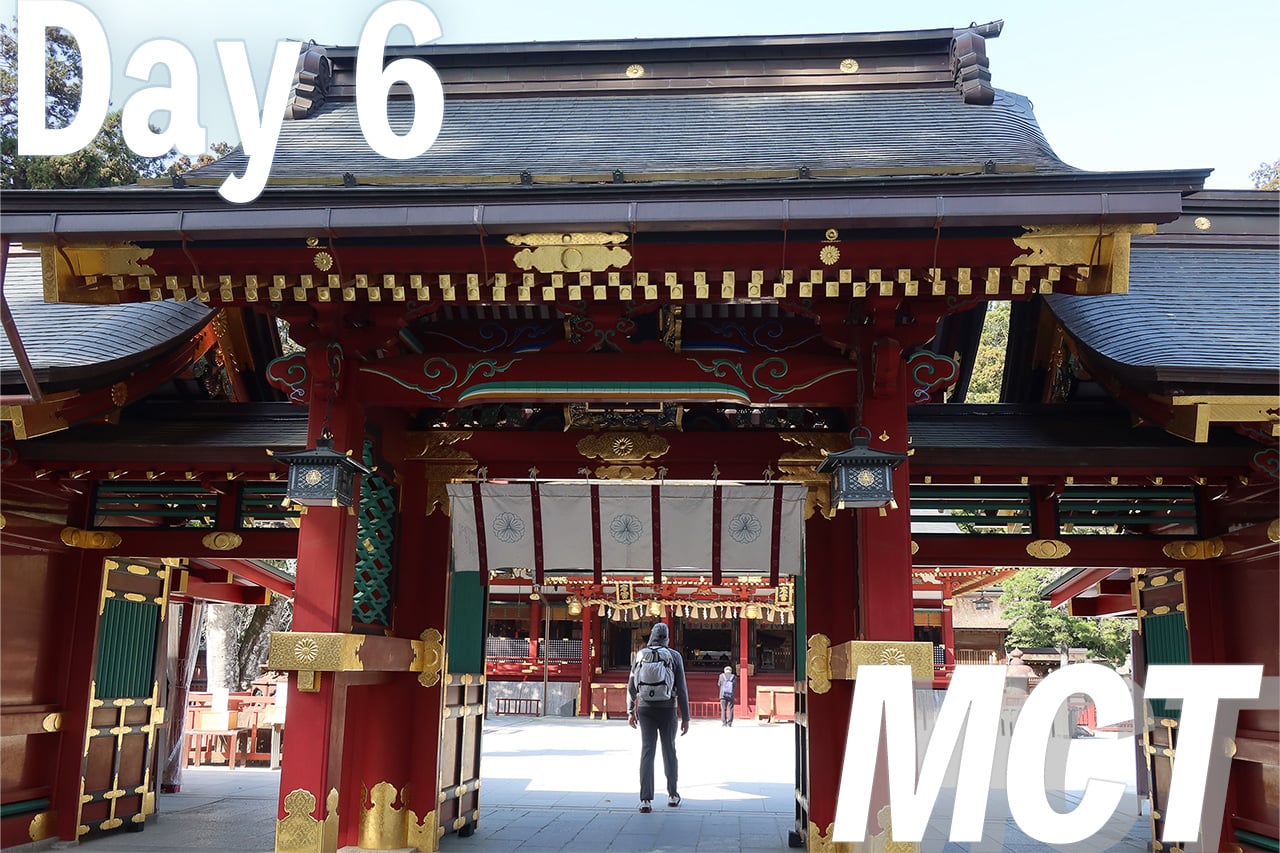
Day 6 of MCT (Michinoku Coastal Trail): Tagajo & Shiogama 多賀城市&塩竈市
Day 6 began with easy feet and clear skies — a rare combination on the MCT so far. From the port of Sendai to Tagajo, a city whose history stretches back more than a thousand years, the trail led us through layers of ancient culture and sacred hills. Cherry blossoms lined the path, softening the air with spring. By day’s end, we stood at Shiogama Shrine overlooking the bay, knowing that tomorrow, the trail would carry us across the sea to the islands beyond. -
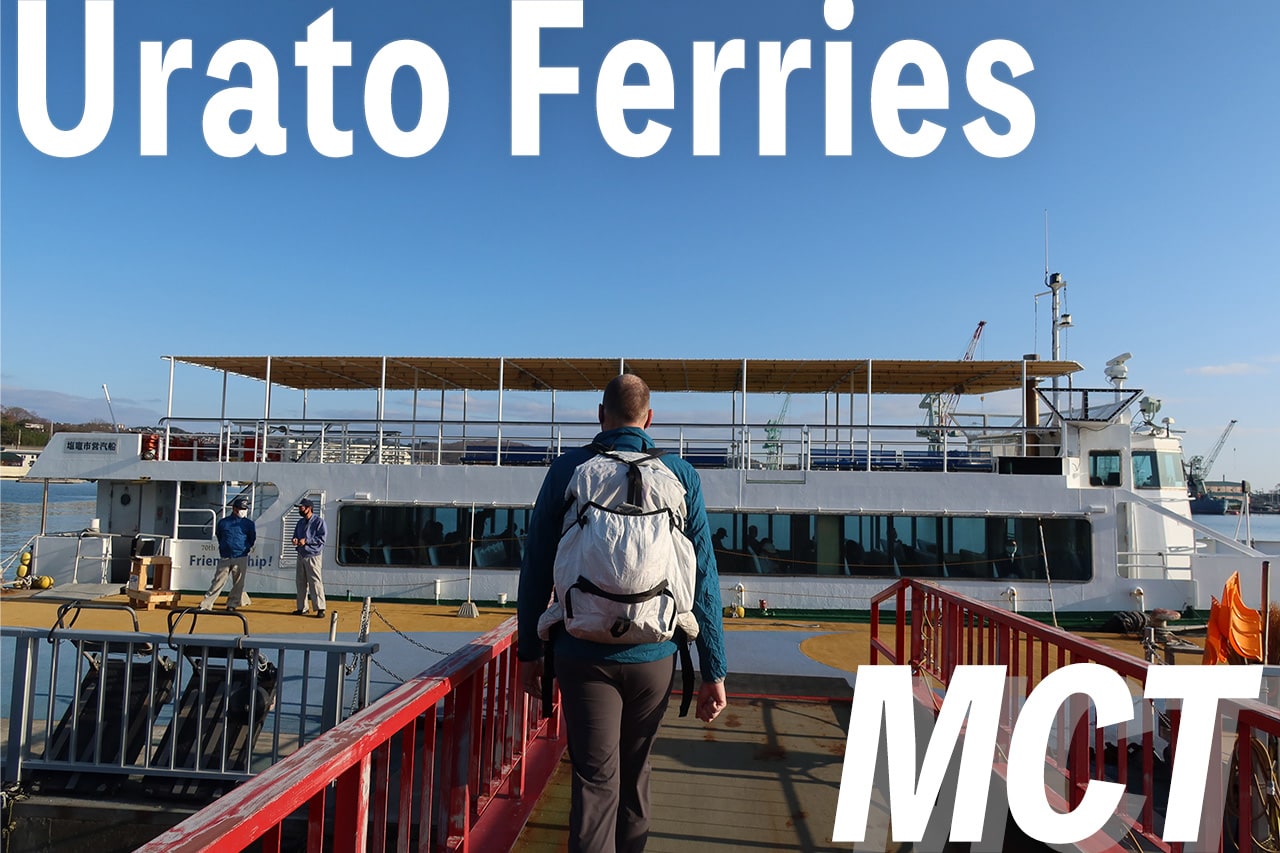
Urato Islands by Boat: How to Plan the MCT’s Island Section
This guide explains how to plan the Urato Islands section of the Michinoku Coastal Trail — one of the route’s most logistics-heavy days — and why hiking northbound (NOBO) makes it easier. It outlines the four required boat rides across the Urato Islands and clarifies which boats run where. You’ll learn when and how to reserve the special boat to cross the sea between Sabusawajima and Miyatojima islands, plus why getting these island legs done in your first 10 days removes a major planning headache. -
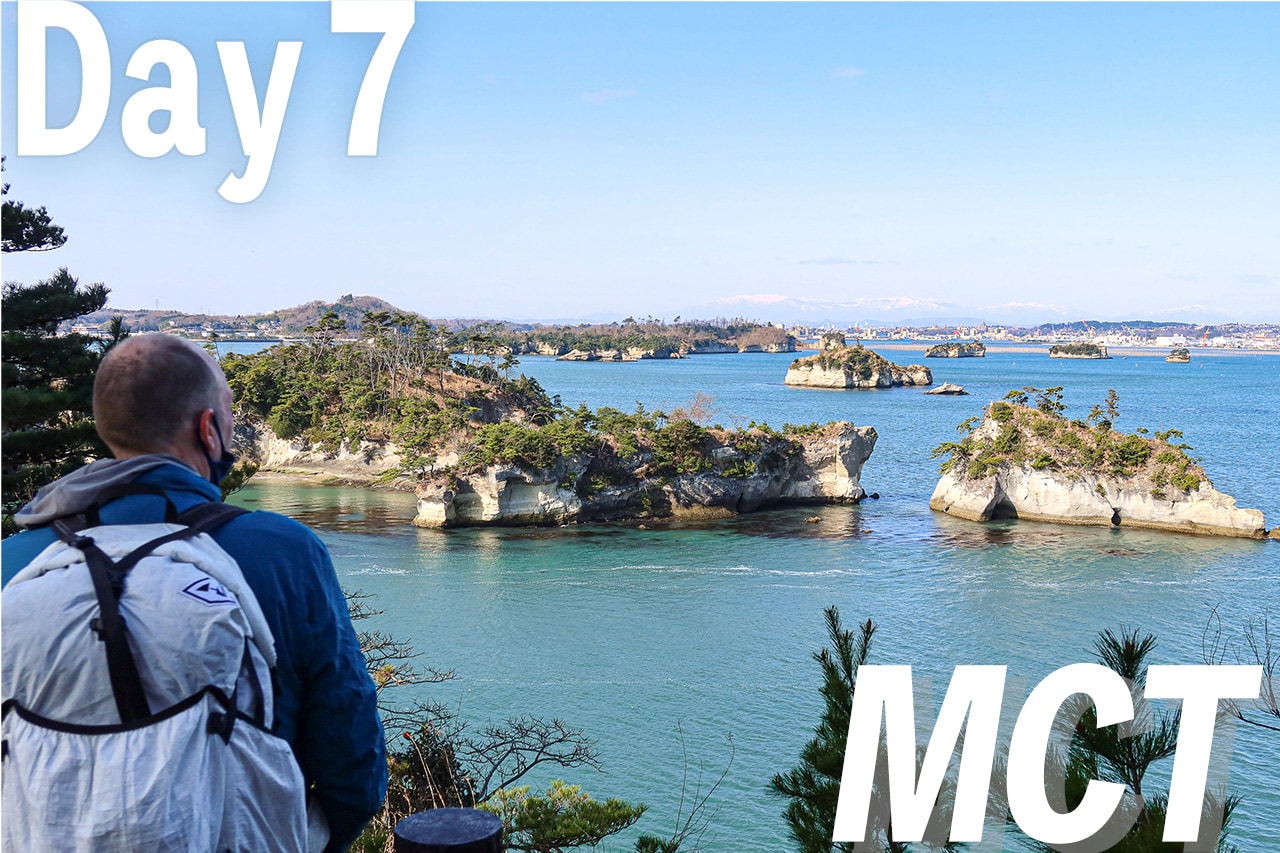
Day 7 of MCT (Michinoku Coastal Trail): Urato Islands 浦戸諸島
Day 7 begins on water, not trail. Three quiet islands ask less of our legs and more of our timing—boats that move when the sea allows, a call that has to land, and small buffers that keep a walk from turning into a sprint. We slip past shrines and a strip of sand, then meet one person whose story quietly reshapes the afternoon. The crossings themselves are easy; the puzzle is pace—wait, move, decide—until it all lines up. By afternoon, our planned pickup becomes a short small-boat cruise off the islands, the kind that turns logistics into memory. It isn’t dramatic—just sea air, a narrow strait, and the reminder that on this trail, timing counts as much as distance. -
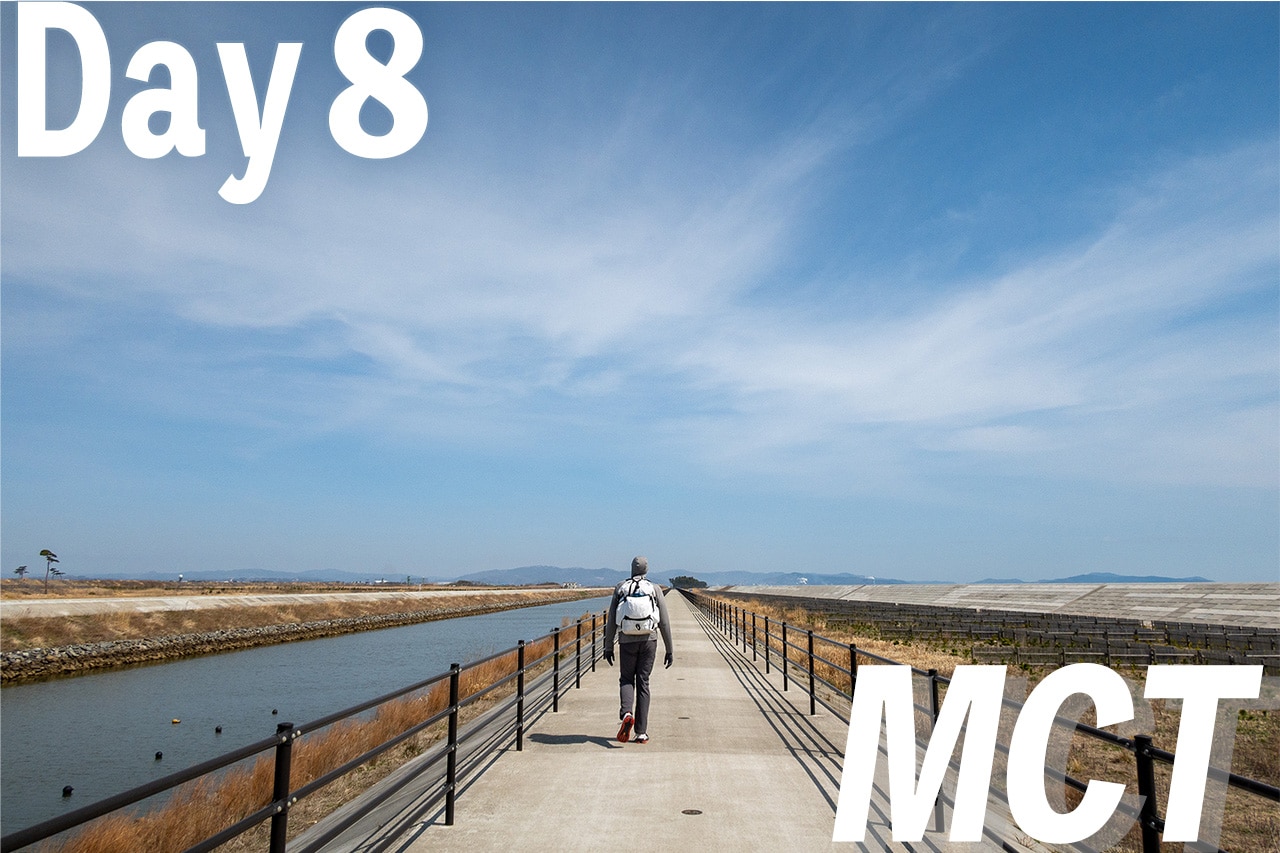
Day 8 of MCT (Michinoku Coastal Trail): Ishinomaki 石巻市
The Only Unbooked Night During the fifty days of our hike on the Michinoku Coastal Trail, we always booked accommodations to secure our beds in the walls and roofs for the next seven days or eight. It was mainly because we needed to plan how and where to send our camping gear boxes.We always used Yamato delivery ser... -
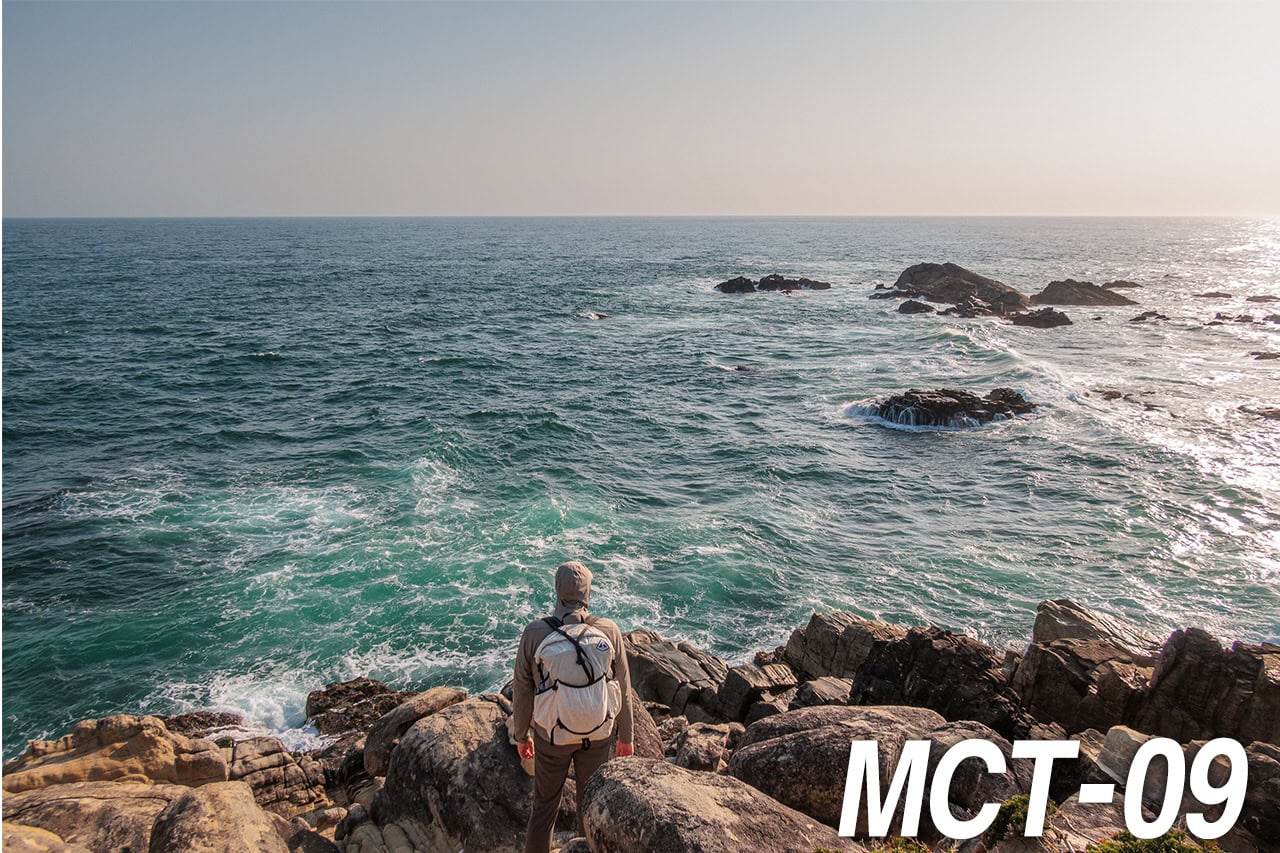
Day 9 of MCT (Michinoku Coastal Trail): Tashirojima & Ajishima Islands 田代島 & 網地島
Two Days to Finish the Island Legs MCT thru-hikers need at least three days to cover the official island sections. Those sections are concentrated in the southern part of the route, which means northbound hikers face the sea crossings early; southbound hikers hit them just before the southern trailhead. We finished ... -
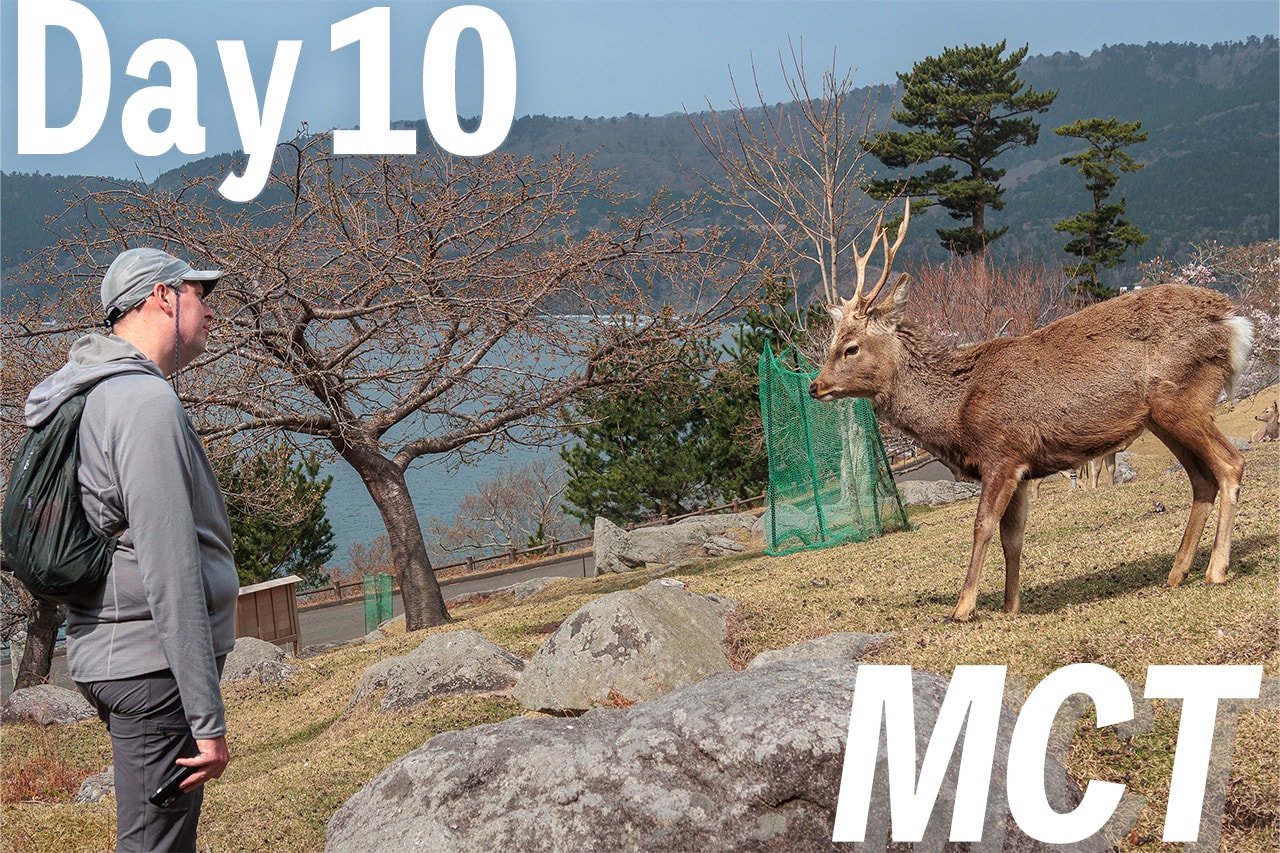
Day 10 of MCT (Michinoku Coastal Trail): Mt. Kinkasan Island 金華山
Day 10 of our MCT thru-hike took us to Kinkasan, a sacred “mountain island” long admired and visited by worshippers from across Japan. The hardest place to reach along the MCT, its challenge lies not in the trail itself but in the very limited transportation to the island. Climbing through misty forests to the ancient shrine, we walked among gentle deer and quiet stone paths that felt unchanged for centuries. By the time we returned to Ayukawa, tired but content, we had finished the MCT’s last island section — and closed the most complicated chapter of our journey. -
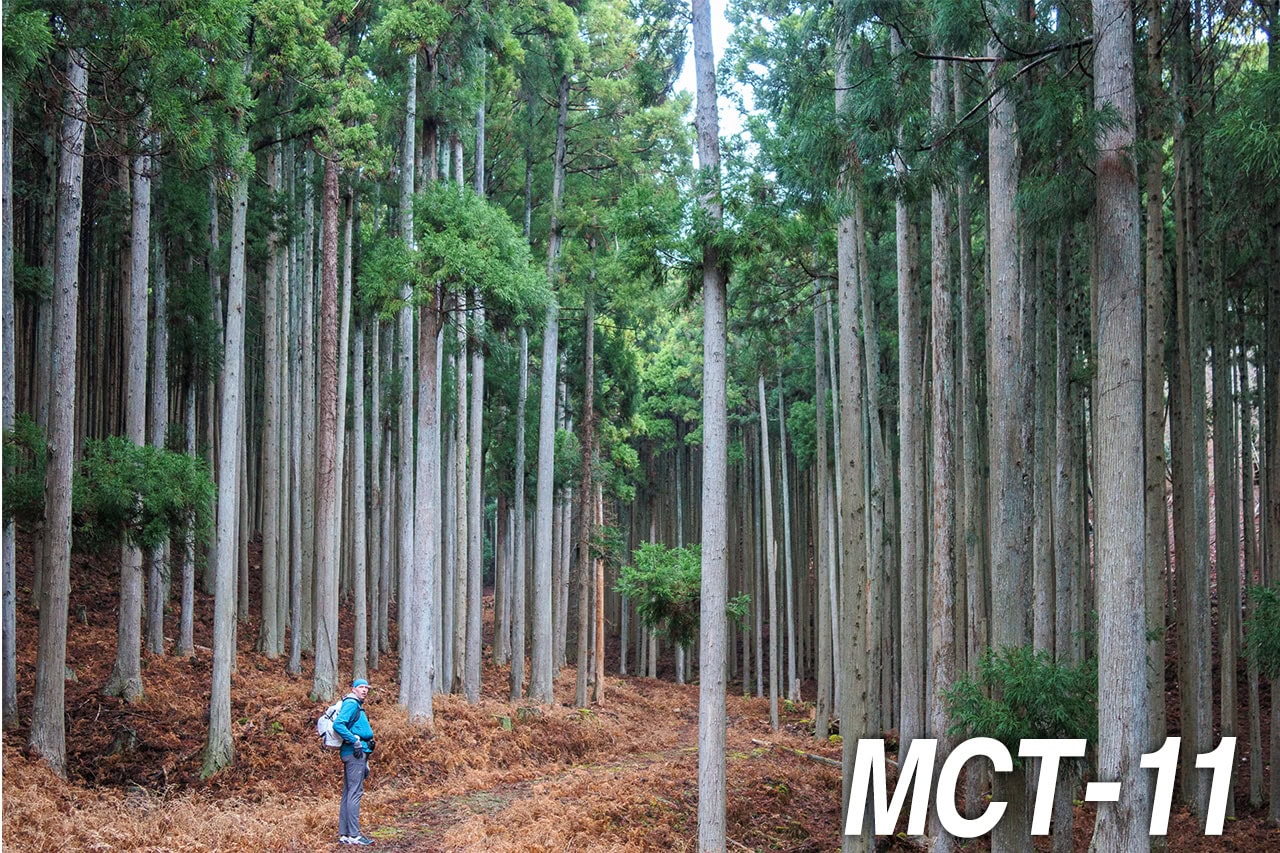
Day 11 of MCT (Michinoku Coastal Trail): Oshika Peninsula 牡鹿半島
Day 11 of our MCT thru-hike began in mist and light rain, following the west coast of the Oshika Peninsula toward Onagawa. It was a long day of winding roads, small fishing ports, and quiet mountain trails once used by pilgrims bound for Kinkasan. Between narrow shoulders, fogged-over sea views, and endless roadside litter, the walk wasn’t always pleasant — but the cool forest paths, stray artworks from the Reborn-Art Festival, and the calm rhythm of the coast gave the day its own character. By evening, we reached the fishing hamlet of Onagawa and checked into Zuiko, a small inn that turned out to be one of our best stays on the entire MCT. -
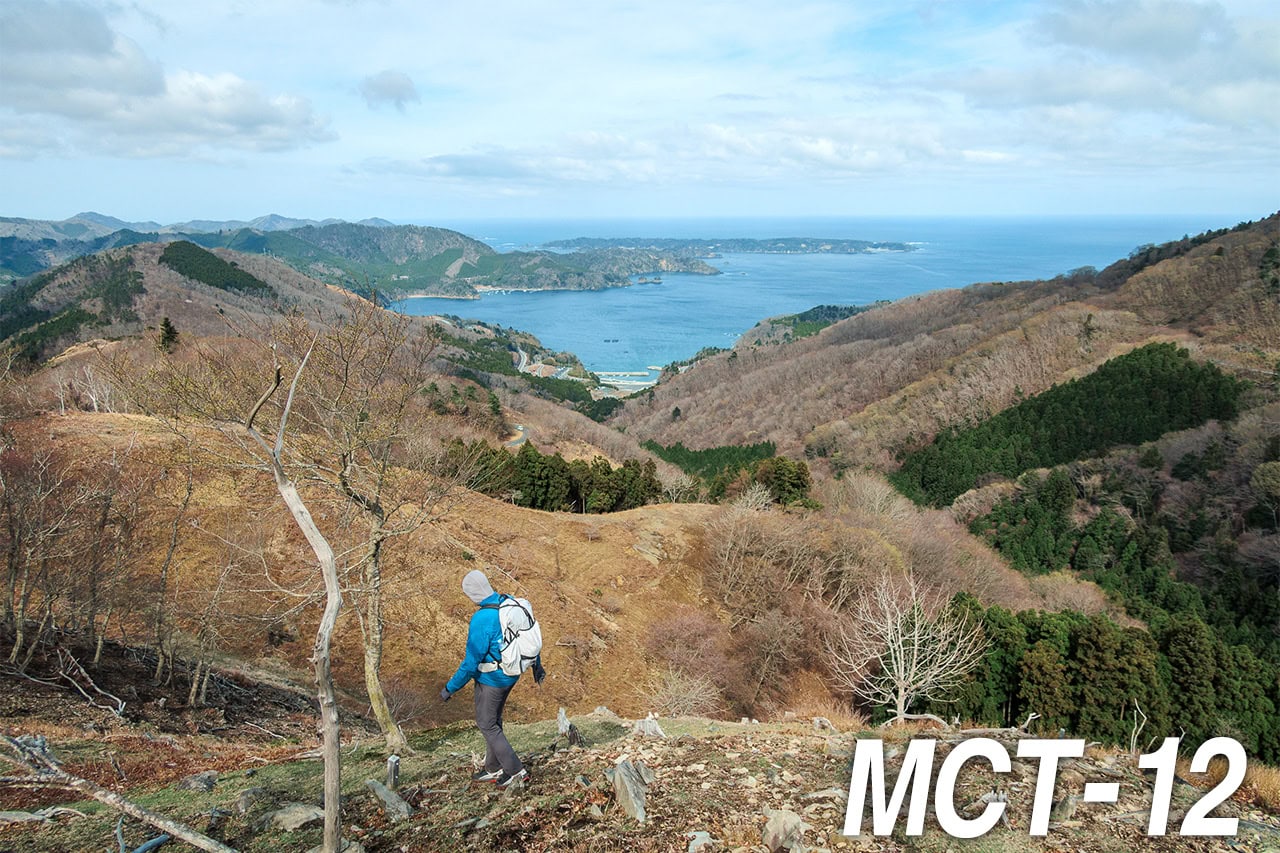
Day 12 of MCT (Michinoku Coastal Trail): Mt.Dairokutenyama 大六天山
The excellent view through the windows of our room at Zuiko was even better this morning. The seawater was lighter blue and more transparent, calmly shimmering under the morning sun. The rain clouds and cold wind had gone. We slept well last night as Zuiko was pretty quiet inside and outside. Surprisingly, tho... -
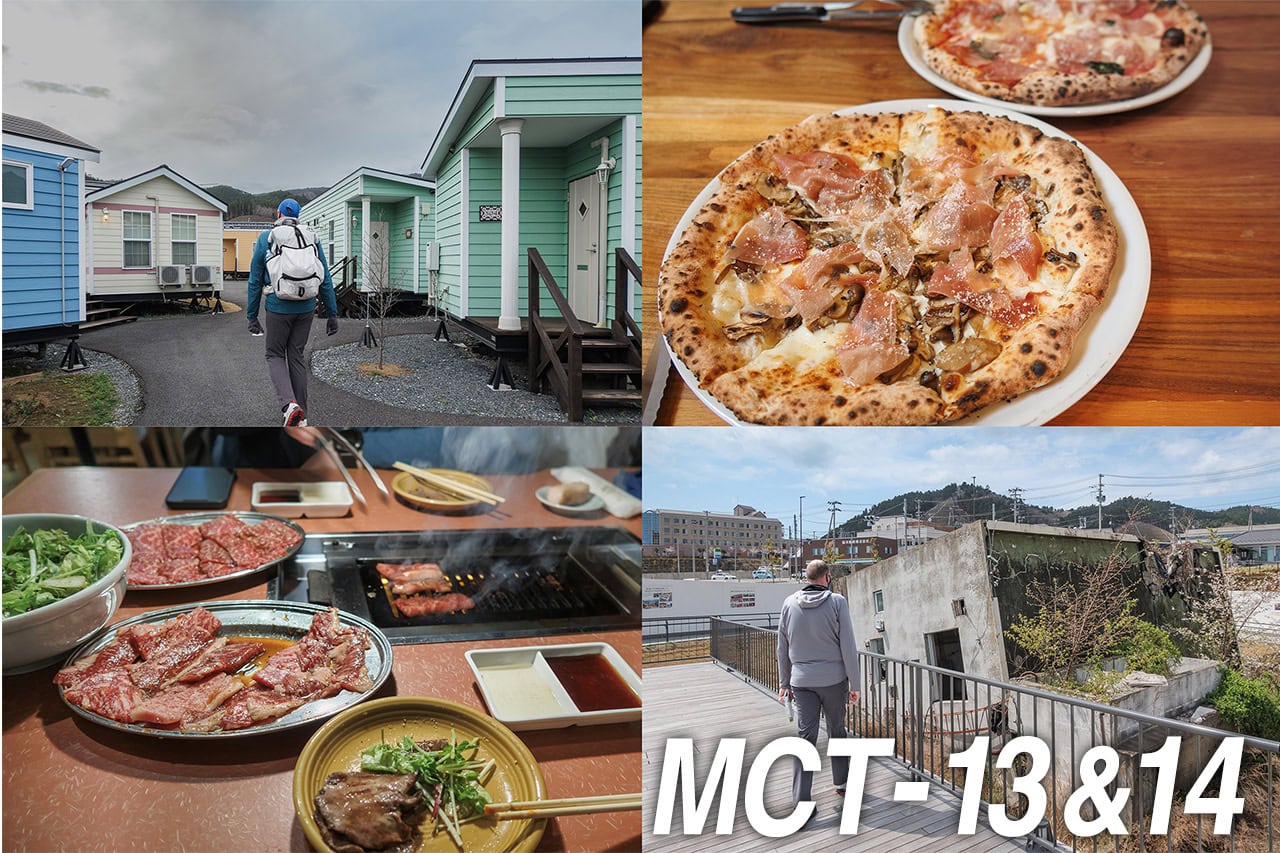
Day 13-14 of MCT (Michinoku Coastal Trail): Onagawa 女川町
Onagawa, an ideal rest-day town Almost two weeks had passed since we started from the MCT Southern Terminus in Soma. It was about time to take a much-needed rest day.As much as we wished we could spontaneously stop and take a rest day, the lodging situation and hiking environment in Japan don’t work well with it. We... -
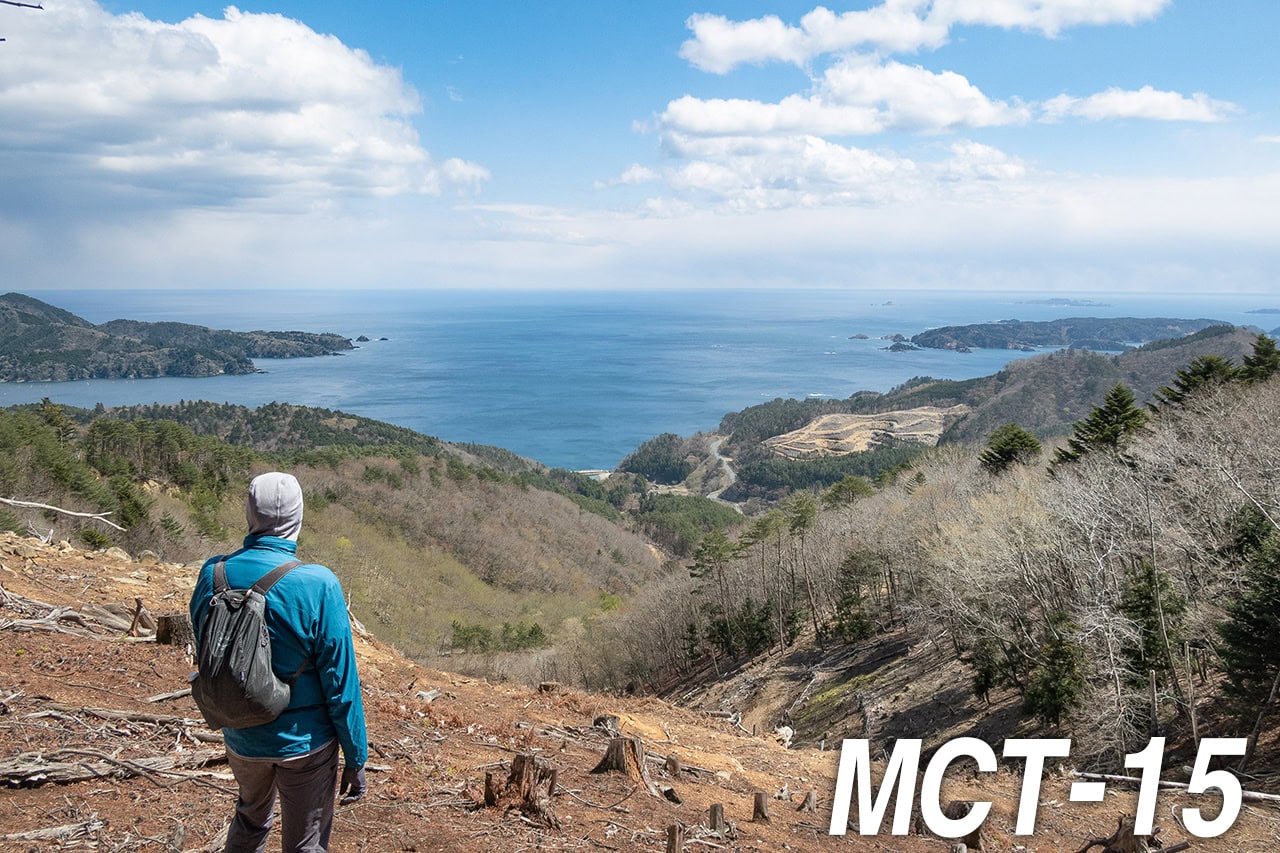
Day 15 of MCT (Michinoku Coastal Trail): Mt. Ishinageyama 石投山
Day 15 took us back to the mountains after two rest days in Onagawa, climbing Mt. Ishinageyama before descending toward the sea at Namiita Beach. It was a day of quick weather shifts, from spring sunshine to brief snow flurries, and the quiet forests gave way to open coastal views. Later, while walking the seaside road toward our goal point, we met our first fellow MCT thru-hiker—a veteran of Japan’s toughest mountain race. Between the mountain trails, chance encounters, and small logistical puzzles, the day felt like a reminder of the trail’s mix of effort and luck. -
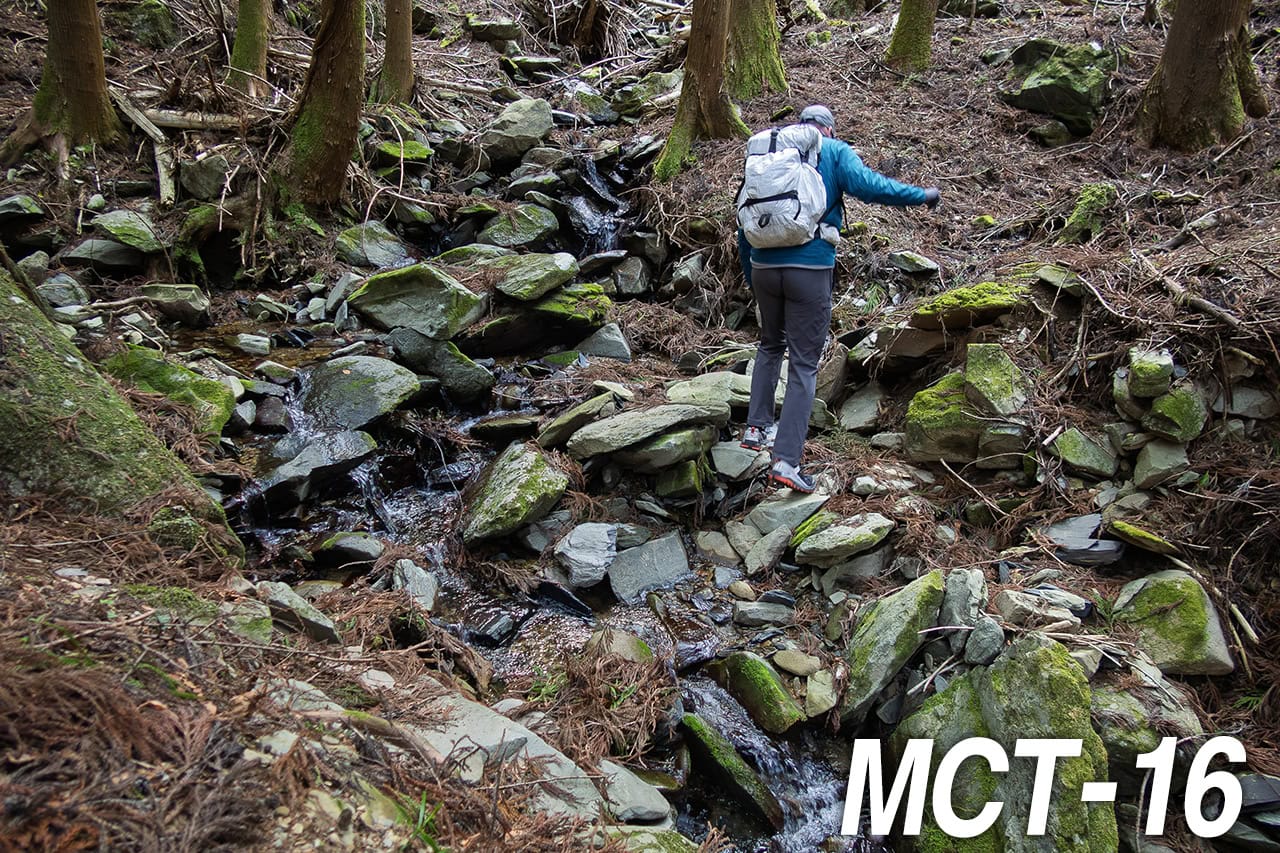
Day 16 of MCT (Michinoku Coastal Trail): Ogatsu Peninsula 雄勝半島
Day 16 of our Michinoku Coastal Trail thru-hike looped around the Ogatsu Peninsula—a long, uneven walk that tested more patience than strength. The route climbed and dropped again and again, sending us down to hamlets that often felt empty and back up to forest roads with no views. Our brief stop at Osusaki Lighthouse offered a rare open sea view and a reminder of how striking the coast can still be beneath all the new seawalls. By the time we crossed Onosaki Toge Pass and reached Lake Nagatsuraura at dusk, we were simply glad to stop walking and call it a day. -
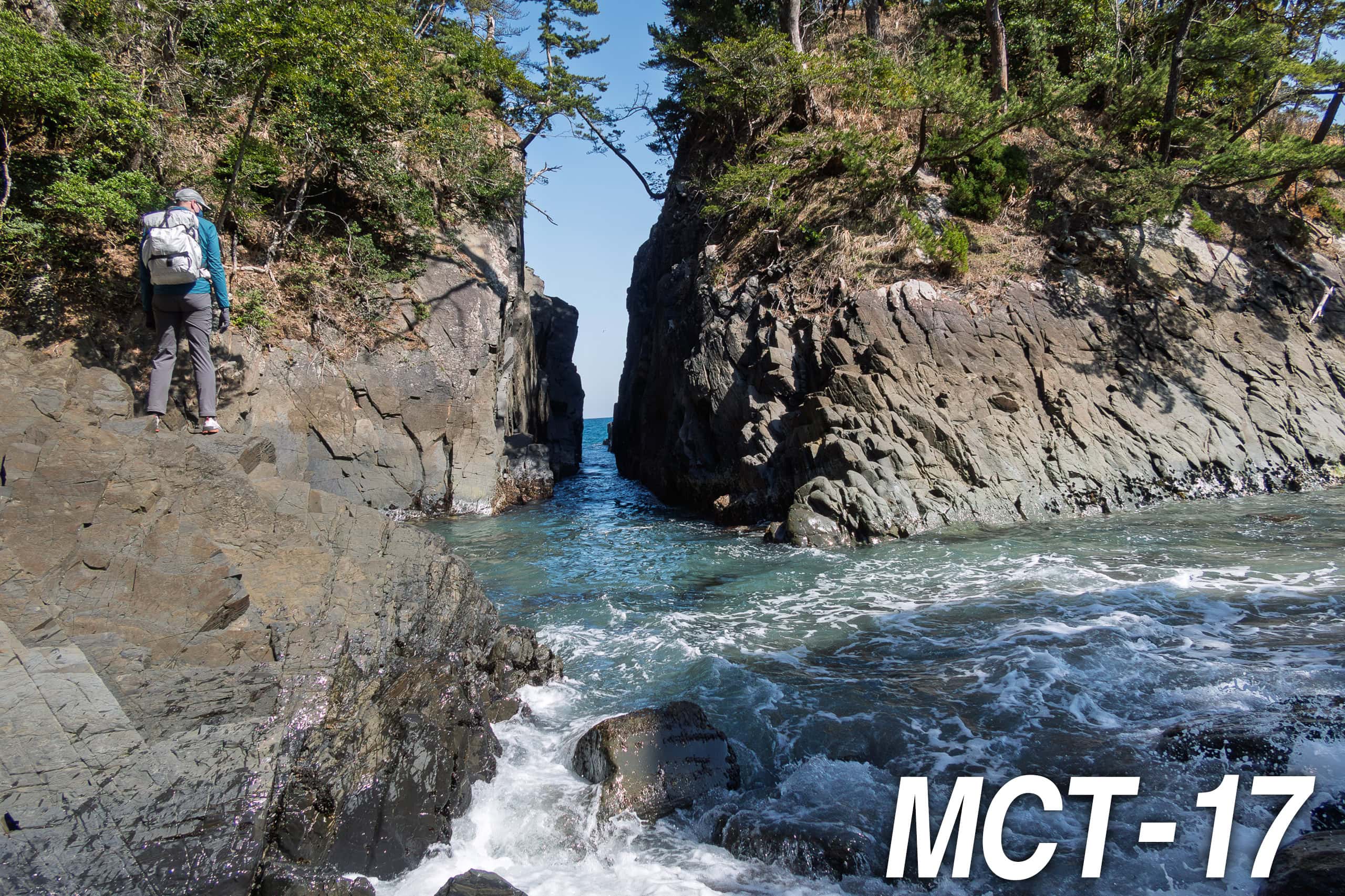
Day 17 of MCT (Michinoku Coastal Trail): Kitakami River & Cape Kamiwarizaki 北上川&神割崎
Day 17 of our Michinoku Coastal Trail thru-hike became a clear turning point. Until now, the flatter southern sections had often felt repetitive and unsatisfying, leaving us doubtful about the trail’s reputation. But after crossing the Kitakami River, everything began to change. The scenery grew wider, the air clearer, and even the mood lighter. We visited the quiet memorial at Okawa Elementary School, saw our first wild Japanese serow, and followed the coast to Cape Kamiwarizaki and the lively hamlets of Minamisanriku. It was the first day we felt the trail open up — both in landscape and in spirit. -
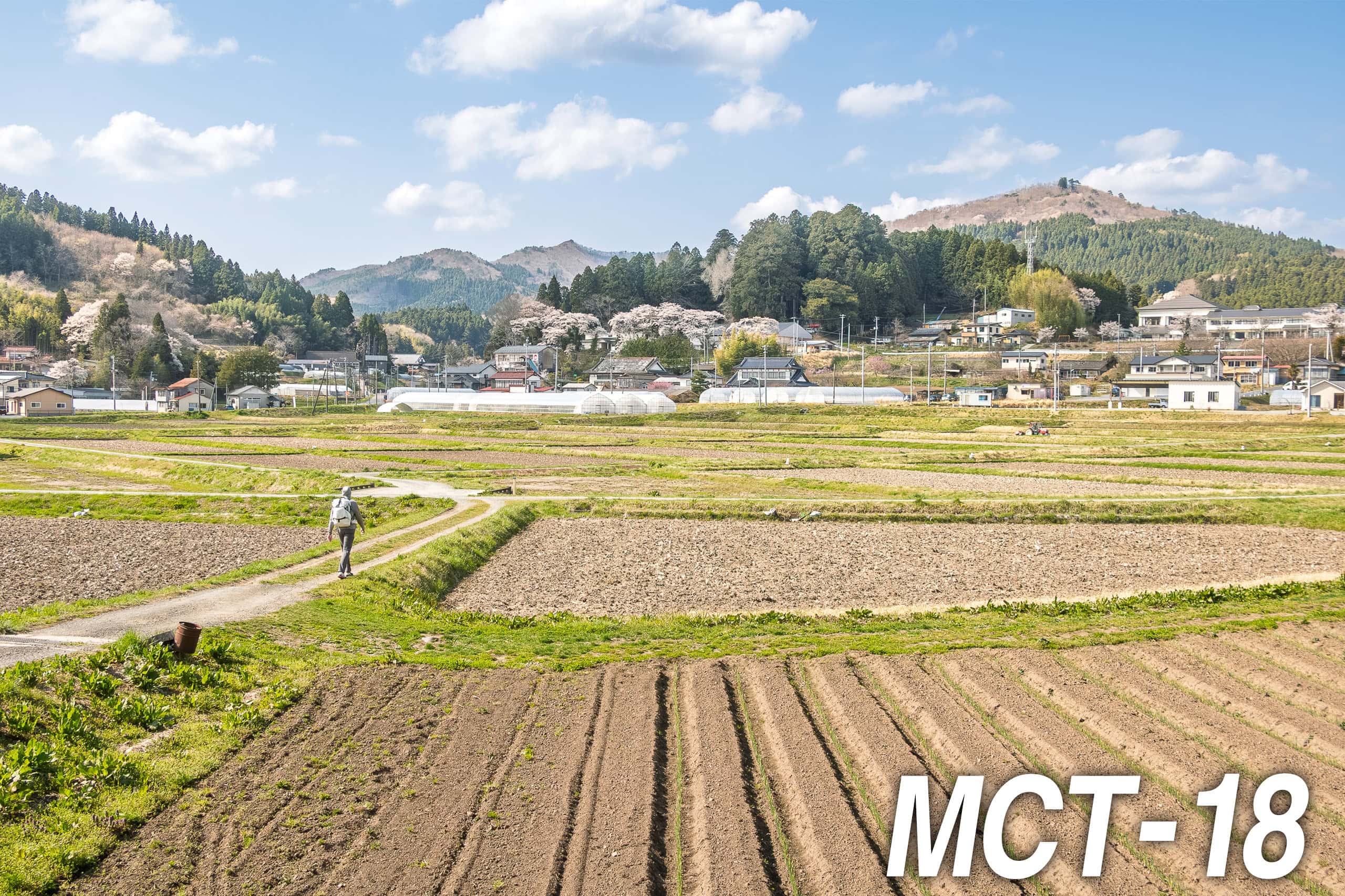
Day 18 of MCT (Michinoku Coastal Trail): Minamisanriku 南三陸町
Day 18 of our MCT thru-hike showed a different side of Minamisanriku — greener, calmer, and filled with stories of resilience. In Shizugawa, we visited two opposite memorials: one honoring the great survival at Takano Kaikan and another marking the deep loss at the former town hall. Later, on quiet forest roads, we met another Japanese serow and wandered into Iriya, where an octopus charm had become a symbol of recovery and good luck. By evening, we reached a former elementary school turned inn, ending a day that felt rooted in the spirit of rebuilding and everyday life along the northern trail.
Michinoku Coastral Trail (MCT)– 1000km, 50days, along the Pacific Ocean coastline of Tohoku, Japan –
The day-by-day detailed itineraries and guides of our 50-day Michinoku Coastal Trail (MCT) thru-hike. Michinoku Coastal Trail, みちのく潮風トレイル, is one of the prominent and rare "over 1000km" long-distance trails in Japan, along the Pacific Ocean coastline of the Tohoku region.
